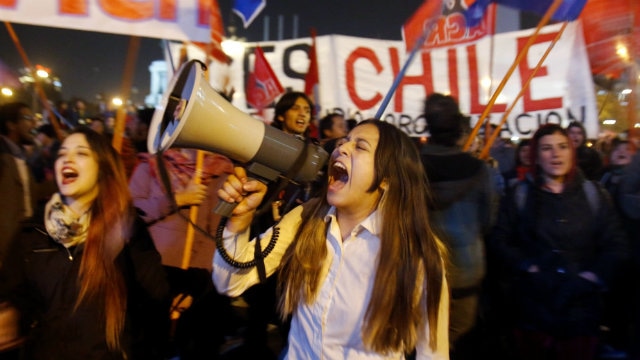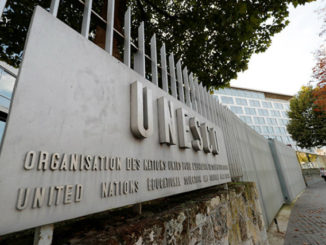
Isabel Cocker/The Santiago Times Staff
SANTIAGO – The International Civic and Citizenship Study 2016 (ICCS), whose results were released on Tuesday, revealed that Chilean adolescents prefer to express their opinions of public matters through protesting and spraying graffiti than to voting in elections.
The study, which surveyed students in their eighth year of schooling in 24 countries worldwide, was conducted by the International Association for the Evaluation of Educational Achievement (IEA). The ICCS 2016 study is the second iteration of the survey, which was first conducted in 2009. It was established in order to meet the demand for continuing research on civic and citizenship education.
The study aimed to address four areas of interest, through a range of questions. It assessed students’ knowledge of citizenship and civic education, and the factors affecting the disparity of this knowledge internationally, as well as measuring students’ current and future investment in civic-related activities and the perceived worth of these activities. It also looked at the students’ views on contemporary civil and civic issues in society and the ways in which countries themselves encourage education on such issues, with special consideration on the curriculum and its delivery to students.

When assessing the civic knowledge of each country, a questionnaire was given to each pupil. This, a multiple-choice assessment, used questions such as “Individuals or groups sometimes give money to political parties as donations. Some countries have laws which require political parties to give the public access to information about these donations. Why do countries have these laws?”.
Chileans prefer nationalized healthcare and education, reveals new study
In this part of the study, Chilean schoolchildren received an average score of 482 points, far below the ICCS average of 517. This is also slightly lower than the Chilean average score from the 2009 study, in which they received 483 points. This places them 17th out of the 21 countries who met the required participation rate for this section.
The percentage of Chilean students in 2016 using the television to inform themselves of national and international news (76%) was significantly higher than those using newspapers for the same purpose (23%). However, both of these figures had dropped since the 2009 survey, from 80% and 36% respectively.
The survey also contrasted the students’ expected participation in legal civic activities – such as participation in a peaceful rally or online petition, contacting an official elected representative, or collecting signatures – with their expected participation in illegal activities. These included spray painting slogans in public places, blocking traffic in protest or occupying a building.

According to the ICCS study, 52% of Chilean schoolchildren would be expected to participate in legal activities and 54% would take part in illegal protests. The study highlighted the case of Chile in particular, noting that whilst in general there is a large gender disparity between male and female participation in illegal activities, with significantly more males taking part in illegal protests, these figures are at parity between genders for Chile.
The Executive Secretary for the Quality of Education Agency for Chile, Carlos Henríquez, commented that this is a clear indication that Chileans value illegal activities more highly than anything encouraged by the government, reported Emol, the online Chilean news organization. Henríquez noted that, “here we have an opportunity, as a society, to take charge of prioritizing peaceful activities”.
The entire study can be found here.



